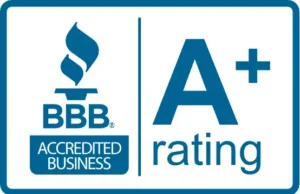Currently, Synchrony offers low monthly payments and many financing options. You can have your home repaired now and pay later with one of Synchrony's six monthly payment programs.
Home elevation has become an increasingly important consideration for residents of Rye, located in Liberty County, Texas. As coastal communities face growing concerns about flooding and storm surge, elevating residential properties has emerged as a crucial strategy for protecting homes and ensuring long-term safety. This process involves raising the entire structure above potential flood levels, creating a protective barrier against water damage that can devastate properties and displace families.
Rye’s location in Liberty County places it in a region particularly susceptible to flooding events. The area’s proximity to waterways and its position along the Texas coast make it vulnerable to both hurricane-related storm surge and seasonal flooding. Furthermore, changing weather patterns and rising sea levels have intensified the need for proactive flood protection measures. Home elevation serves as a permanent solution that can significantly reduce flood insurance premiums while providing peace of mind to homeowners who want to protect their most valuable investment.
The elevation process begins with a comprehensive assessment of the existing structure and soil conditions. Professional contractors evaluate the home’s foundation, structural integrity, and the optimal height required based on local flood zone designations and FEMA guidelines. Subsequently, the house is carefully lifted using specialized hydraulic jacking systems, allowing workers to construct a new, elevated foundation underneath. This foundation typically consists of reinforced concrete or masonry piers that raise the living space above the base flood elevation requirements for Liberty County.
While flood protection remains the primary motivation for home elevation in Rye, the benefits extend well beyond water damage prevention. Elevated homes often experience improved ventilation and reduced humidity issues, which can help prevent mold and mildew growth. Additionally, the elevated design can provide homeowners with enhanced views of the surrounding landscape and create valuable storage space beneath the structure. Many residents also find that their elevated homes have increased property values, making this investment financially beneficial in multiple ways.
When considering home elevation in Liberty County, it’s essential to work with experienced contractors who specialize exclusively in residential projects. Companies like Allied Foundation focus solely on residential services, ensuring they have the specific expertise needed for home elevation projects. This specialization means they understand the unique challenges of lifting occupied homes, working around utility connections, and maintaining structural integrity throughout the process. Their residential focus allows them to provide personalized service tailored to homeowners’ specific needs and concerns, rather than treating residential projects as secondary to commercial work.
Proudly Serving Rye for over 40 years!


